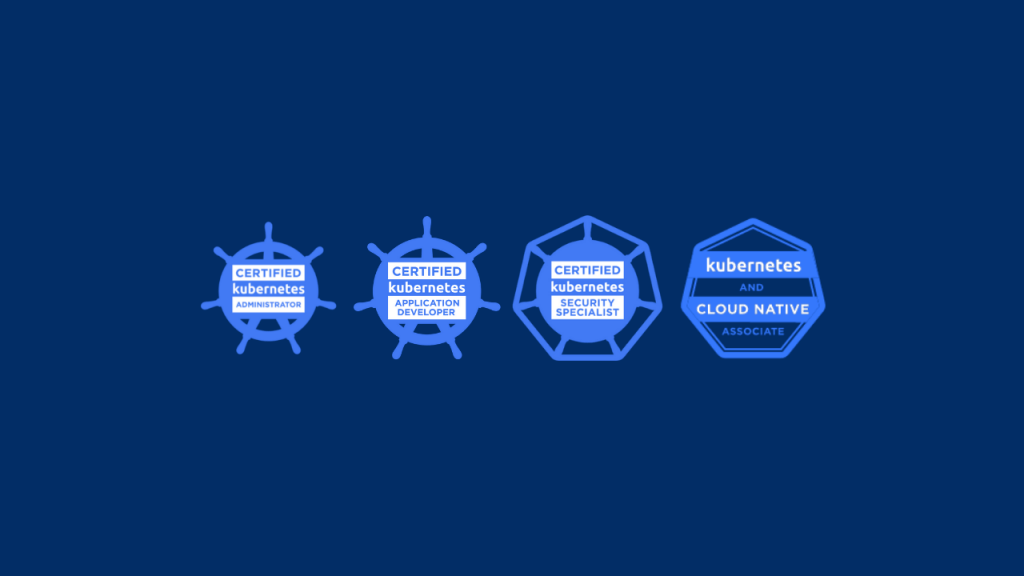
Did you ever wonder when people post their certification victories with CKA, CKAD or CKS badges ? Why are these certifications so important and why are system engineers and devops practitioners running after Kubernetes certifications ? There are many reasons behind this and let us explore a few of them.
Advantages of Kubernetes Certification
1. Kubernetes certifications can show the Kubernetes skill of you
Passing CKA, CKAD or CKS (or KCNA) certifications doesn’t mean that you are a Kubernetes expert. But it means that you have the knowledge of Kubernetes and you can pick up the real Kubernetes scenarios better and faster compared to someone who has zero knowledge of Kubernetes.
2. It will help you to switch your role to DevOps or SRE track
Earlier the systems engineers (and formerly systems administrators) were handling the virtual machines and virtualization platforms. Organizations are moving their applications from legacy bare metal servers to virtual machines to containers and Kubernetes is the default platform for managing such complex container platforms. Hence the organizations need engineers with Kubernetes skills to run their modern application platform and upskilling or reskilling are heavily happening around.
3. It will help you to get a better job
If you are still stuck with old system engineer tasks (the role doesn’t matter) and want to work on containers and DevOps based tasks, then Kubernetes certifications will help you to land a new role. I didn’t mean that you will get the job but the chances for getting your profile notified will be increased.
4. Learn Kubernetes in the right way
You will learn the Kubernetes in the right way by following a proper curriculum (and a course) which will help you to not to miss any important core concepts about Kubernetes.
5. Difficulty of the exams make the certification more valuable
Kubernetes certifications are practical hands-on exams and not everyone can simply pass these exams by reading question dumps or sample question papers. If you pass the exam, you have the knowledge and understanding about the specific topic. (But remember the real life hands-on part)
Check techbeatly.com/k8s for Kubernetes learning resources and other recommended courses.
What are the promotions available for Kubernetes certification ?
There are few promotions by The Linux Foundation available now and you can use it for getting Kubernetes certification at a lower cost.
Chinese New Year promotion – 25% OFF
Use Chinese New Year #CNY promotion to get 25% OFF (~ $143) on CKA, CKAD, CKS, KCNA certification exams, courses or bootcamps. Use the code CNYG22 at checkout (valid until 3rd Feb).
50% off the CKAD and CKS exams bundle
Get 50% off the CKAD and CKS exams bundle. You will save $175, an additional $200 and get TWO certifications for $575 for only $375. Use the code CKADCKS22 at checkout (valid until 25th Jan).
CKA + CKS Bundle for $575 !
Get 23% off the CKA and CKS exam bundle. You will save $175 and get TWO certifications for $750 for only $575.
CKAD or CKS for $275 !
Get $100 off the CKAD and CKS exams. You will save $100 and get CKAD or CKS certifications for $375 for only $275. Use the code 1EXAM22 at checkout (valid until 25th Jan).
Which Kubernetes certification should you go for ?
Okay, I am not an expert to advise you to choose your track as we all know Kubernetes have three tracks and you need to decide which one you want to go.
Kubernetes Administrator
If you are an Infrastructure guy like Linux Engineer or Systems Engineer, then you can go for Certified Kubernetes Administrator (CKA) track, as you will learn end-to-end kubernetes architecture and operations.
Kubernetes Application Developer
Okay, I understand that you are a developer and you are not going to manage the kubernetes infrastructure or cluster but just deploying and managing your application on top of Kubernetes. Well, then you go for Certified Kubernetes Application Developer (CKAD) track, as it will just cover what you need to deploy and manage applications in a Kubernetes cluster.
Kubernetes Security Expert
If you are from the security side and handle all security related operations, then Certified Kubernetes Security Specialist (CKS) exam is the one you have to choose. You will be assessed for security hardening, cluster hardening, vulnerability management and other logging/monitoring related topics. But please note that you need to complete the CKA certification before attending the CKS certification !
Kubernetes and Cloud Native Associate (KCNA)
This is the foundational exam to understand and validate your core knowledge in Kubernetes. This is not a mandatory exam but if you are a person who needs to know Kubernetes and validate the knowledge then you can get this certification rather than going for advanced certifications such as CKA, CKAD or CKS.
Some thoughts
Since the tracks and topics are “tightly coupled”, it would be great to get multiple certifications (eg: CKS + CKAD or CKA + CKS etc) as it won’t take much effort to get the second certification. Yes, only if you are interested and okay to spend money for that; my opinion only.
How to get hands-on experience if I am not working on Kubernetes ?
Kubernetes based roles also have the same situation as hiring managers are looking for experienced candidates but how can you get experience without having a real Kubernetes job. Every cloud-native aspirant will not have the luxury of real time Kubernetes experience because of this. Here are some tips to know the real-life Kubernetes tasks.
- Try different Kubernetes scenarios and workshops. Check these Kubernetes workshop resources from techbeatly.
- Join Kubernetes communities (slack, telegram, whatsapp) and read and understand what people are talking about, what are the problems they are facing etc. Also try to answer if someone asks questions there. You will search and learn something new when you try to answer questions.
- Create your Kubernetes cluster and deploy applications and use cases.
All the best for your Kubernetes journey.
